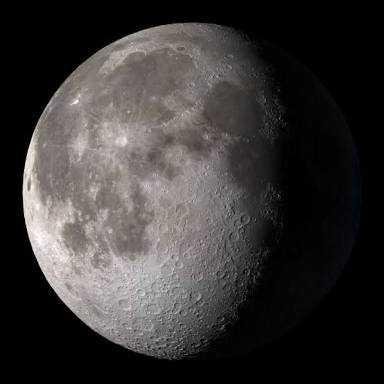The moon

The moon is the world's only natural satellite and the fifth largest satellite in the solar system. The average distance of the center of the Moon from the center of the Earth is 384,399 kilometers (about 2338855 miles) which is about 30 times the diameter of the Earth. Moon diameter is 3,474.206 kilometers (2,159 miles) which is slightly more than one quarter of the Earth's diameter. It means, the moon's size is 1 percent of the Earth's 50 percent. Gravity ball on its surface is one-sixth of the gravity force on the surface of the earth. If anyone weighs 120 pounds on the surface of the earth, then weighing only 20 pounds on the moon surface. It completes a full rotation around the earth every 27.321 days. After every 29.5 days, the lunar eclipse comes back, that means the same functional again. The chronological rotation of Chandra Kalar is due to the gradual change in geometry of the Earth-moon-sun system.
Due to the general axis known as the Berrikeendra , due to the rotation of the Earth and the Moon, the gravitational attraction and centering forces that are created due to the rotation of the Earth are largely responsible for the tide- making of the earth . Due to the amount of energy that is absorbed due to the tidal effect, the earth's orbit in the center of the center of the bericentine decreases the voltage strength. Because of this, the distance between these two astrologers increases by 3.8 centimeters per year. As long as the effects of the moon on the tide over the earth are completely restored, the moon will continue to move away and the moon's orbit will get stabilized on the day the mitigation occurs.
Dear friend, you do not appear to be following @artzone. Follow @artzone and get added to our voting list for valuable up-votes!